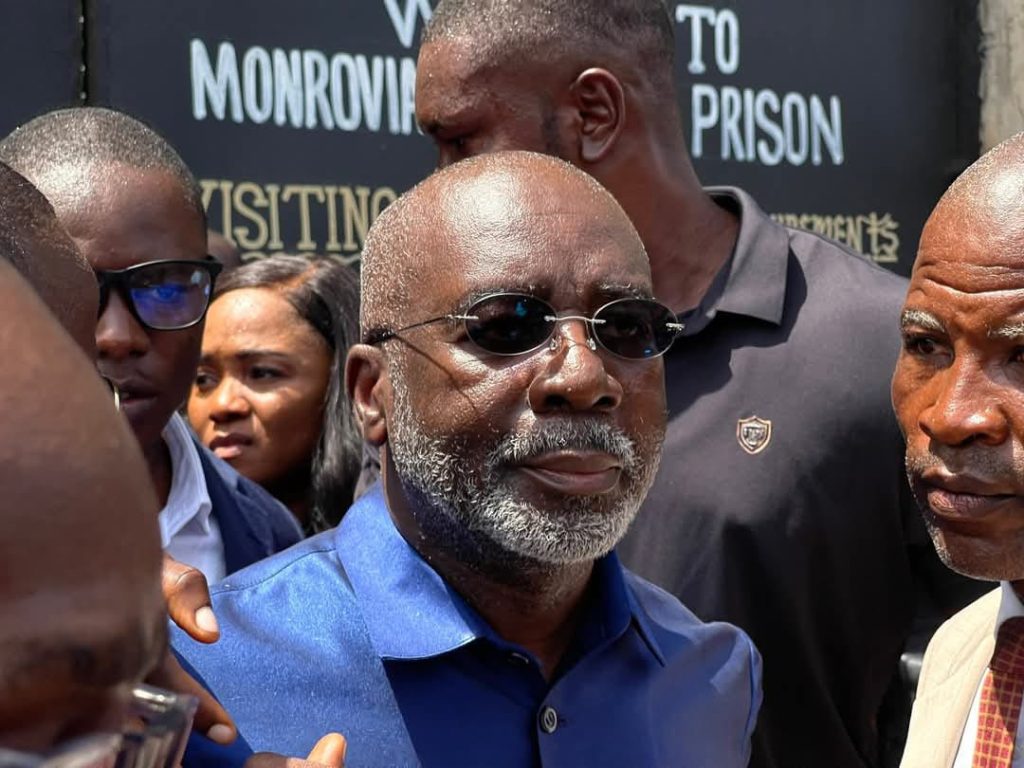The looming arson trial involving former Speaker of the House of Representatives, Cllr. Jonathan Fonati Koffa, and three other lawmakers took a dramatic turn with accusations of delaying tactics against the prosecution. The case, centered around a fire incident at the Capitol Building in December 2024, has been beset by procedural wrangling, the latest of which revolves around the timely submission of evidence to the defense. Judge Roosevelt Z. Willie of Criminal Court “A” granted a postponement of the trial to September 2, 2025, following a plea by the defense team citing insufficient time to review evidence purportedly delivered late in the evening prior to the scheduled trial date.
Former Speaker Koffa expressed his vehement frustration at what he perceived as deliberate maneuvers by the Ministry of Justice to obstruct the trial’s progress. He questioned the prosecution’s explanation for the delayed submission of evidence, especially considering the indictment had been handed down months earlier in June 2025. Koffa’s skepticism stemmed from the prosecution’s assertion of possessing “overwhelming evidence” yet failing to furnish it to the defense with adequate time for review. He strongly hinted at suspecting ulterior motives behind the prosecution’s actions, stopping short of elaborating further on the advice of his legal counsel. The implication of his restrained commentary pointed towards a perceived lack of substantial evidence on the part of the prosecution, fueling the suspicion that the delays were a calculated strategy to stall the proceedings.
The defense argued that the prosecution had ample opportunity—at least five days prior to the trial—to provide the evidence, as stipulated by legal procedure. This failure, they contended, compromised their ability to prepare adequately for the trial, including the potential filing of pre-trial motions based on the presented evidence. Judge Willie acknowledged the validity of the defense’s argument, emphasizing the importance of the discovery process in ensuring a fair trial. The judge reiterated the established principle that sufficient time must be afforded to the opposing party to examine and respond to the disclosed evidence. He concluded that the late delivery of evidence on the eve of the trial did not meet the requirements of due process.
This latest postponement casts a shadow over the already delayed proceedings of the arson case, raising concerns about potential further delays and the overall pursuit of justice. The prosecution’s actions have drawn scrutiny, prompting questions about their motives and the strength of their case. The defense’s insistence on procedural adherence underscores the critical nature of the discovery process in guaranteeing a fair and impartial trial for all parties involved. The unfolding events underscore the delicate balance between efficient judicial process and the safeguarding of fundamental legal rights.
This delay represents not only a setback for the specific case at hand but also reflects a broader concern about the efficiency and transparency of the Liberian judicial system. Prolonged delays, procedural wrangling, and accusations of tactical maneuvering can erode public trust in the justice system’s ability to deliver timely and impartial resolutions. The case’s high profile, involving a former Speaker of the House and other elected officials, amplifies the importance of maintaining procedural integrity and ensuring a transparent process.
The trajectory of the trial hinges on the prosecution’s response to these allegations and their subsequent actions. Their ability to provide a satisfactory explanation for the delayed evidence submission and to adhere to established procedural norms in future will be crucial in restoring confidence in their handling of the case. The court’s vigilance in enforcing procedural rules and ensuring a fair trial will be equally vital. The outcome of this case and the manner in which it is conducted will undoubtedly have significant implications for the public’s perception of the Liberian judicial system and its commitment to upholding the rule of law.


